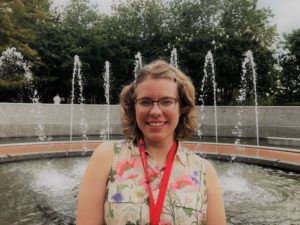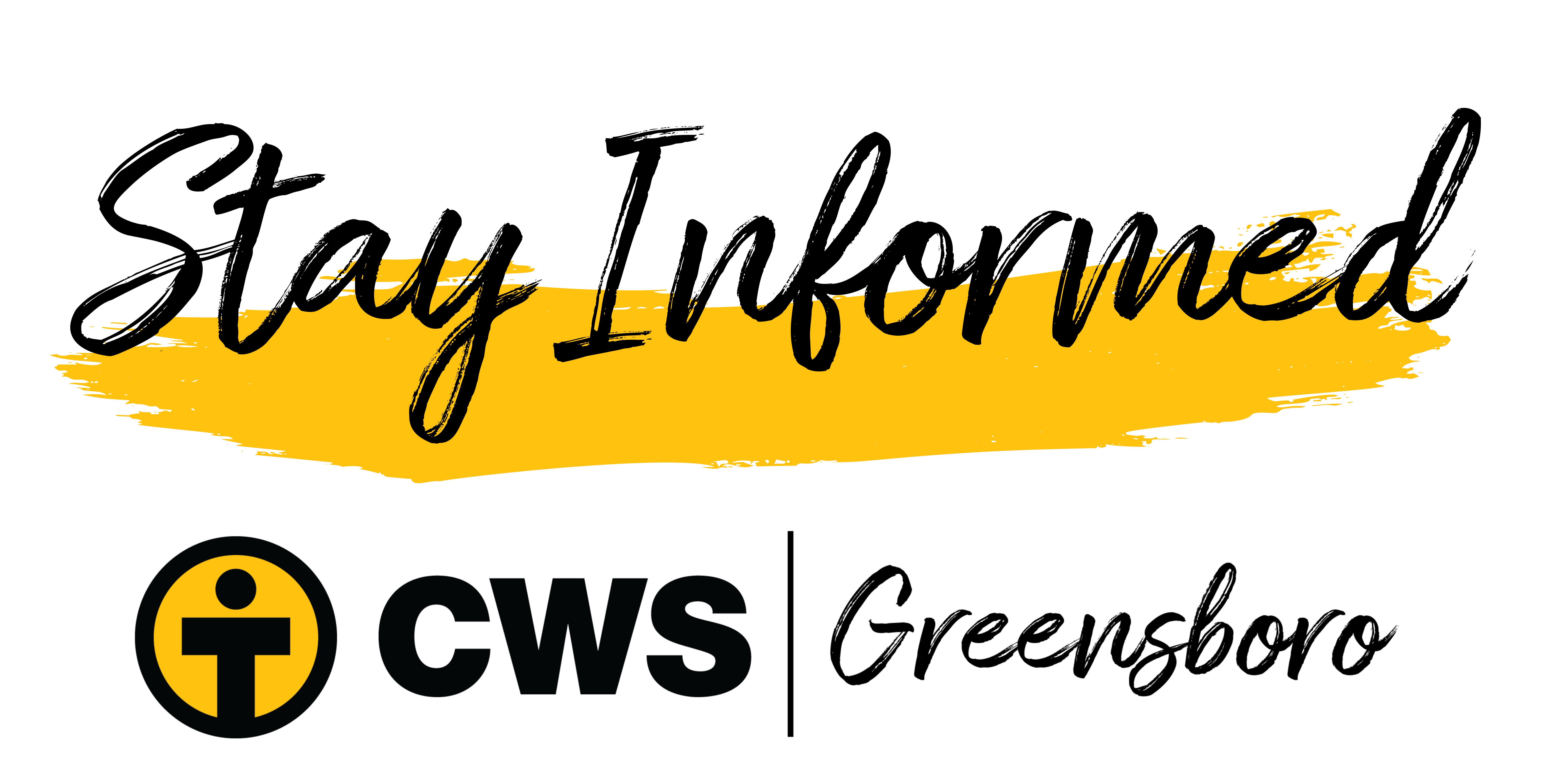
This year, CWS Greensboro has enjoyed the hard work and dedicated effort of Erin Sexton, who served as an Americorps ACCESS member. Under the umbrella of the national Americorps program, Americorps ACCESS is a state-wide project that places volunteers at local sites for one year to provide direct services to refugees and immigrants. Erin’s last day was Friday, August 31st, and we want to give her the chance to share her experience working with refugees in Greensboro.
Q. Erin, can you tell me a little about your background before you came to CWS?
A. Okay, I’m from Raleigh, NC, and I went to school at UNC-Greensboro. I started out as a sign-language interpreting major, but eventually ended with Peace and Conflict Studies. So that’s my undergraduate; after I graduated, I came here. I originally interned with the Center for New North Carolinians, and that’s how I got the word about this position as an AmeriCorps Member at CWS.
Q. Do you still sign?
A. Yeah, actually, I ran into someone just a couple hours ago in the elevator and had a conversation in sign. I have forgotten a lot though.
Q. What have you done at CWS this past year?
A. I’m the Employment Education Instructor through the AmeriCorps program. I hold a job class twice a week. So, that means that all of our new arrivals who do not yet have a job and are work-eligible will come to this class and learn basic skills for working in America. Also, for all the incoming adult clients, we are required within their first 90 days to give them a cultural orientation, which goes over the basics of living in America in general. I’m the person who does that.
Q. What’s been your favorite part of your work?
A. The clients are really great. Even when they are frustrated and going through hard times and it’s difficult to help them—even then—it is very rewarding. Also, playing with kids every now and then!
Q. What’s been the most challenging part?
A. It’s that every single person that comes through has had extraordinary hardships, and there are so many people, and you want to give each and every one of them the attention they deserve, but you can’t. That’s really hard because I do care about them, but as one person I cannot do it all.
Q. How do you maintain hope?
A. I have definitely become a little more jaded this year. I maintain hope when I see people who have successes. Every now and then there’s a success story that I get to see, and I get to talk to the person about it. That’s really nice. And even though my service here is so short, it makes me think that maybe in the future, these people, who are really, really struggling right now, will gain the skills that they need and grow into their new lives.
Q. What was a success story that you experienced in the past year of work with CWS that has given you hope?
A. There have been a few clients that have come in since I’ve been here that had pretty quick success because they speak English. One of the clients that came in now helps us as an interpreter. His wife just had a baby.
The one day when I saw a lot of happy people was when we went to the oath ceremony. Especially when they were coming out of the court house and taking pictures as new citizens, everyone was smiling. It was awesome. They’ve been able to find a life here.
There was another woman from Congo who came in right at the beginning of my service year. And actually, she wasn’t even my student. I watched the job classes she was in. I noticed she was very subdued and was probably having a bit of a tough time. She had a few kids and didn’t speak English. By the time she got a job, she was very jovial. I love her smile. She had the best smile and was very hopeful. I loved seeing that.
Q. How have you changed throughout the experience?
A. I’m fresh out of college. This was my first full-time position, so I’ve gained a lot of necessary professional knowledge. I’m definitely more passionate about immigration and refugee issues than I was before. I’ve learned a bit of Swahili. I had never really been exposed to much news about the African continent before working here, especially the more conflict-heavy regions. I truly hope to see the conflicts calm down in my lifetime.
Q. Are you glad you did it?
A. Oh, absolutely. Yeah, I’m not going to lie. It’s been the hardest year of my life, but I’m really glad I did it.
Q. What do you think Greensboro has to offer and has gained from refugees?
A. Well, it does have jobs. I’ve been a bit surprised by how open employers are. A lot of times when people move into a place, they will create their own community and become entrepreneurs among themselves. Especially when they start working among the community of Greensboro and intermingling, they bring outside ideas that people from America have not experienced. That’s very important to us as a community.
Q. So you’ve been here almost a year now. Your time ends August 31st. What are your adventurous plans for post-CWS?
A. I plan to work at a conversational English school in Japan. It’s for all ages.
Q. What made you interested in doing that?
A. It’s a long story, but I’ve been interested in working in Japan for a very, very long time. I’ve been there a couple of times, and I really like the place. I have some Japanese friends. The lifestyle there is very appealing to me.
Q. Anything else you want people to know?
A. Yes—care about refugees! They’ve been through a lot, and they have a lot to offer.

